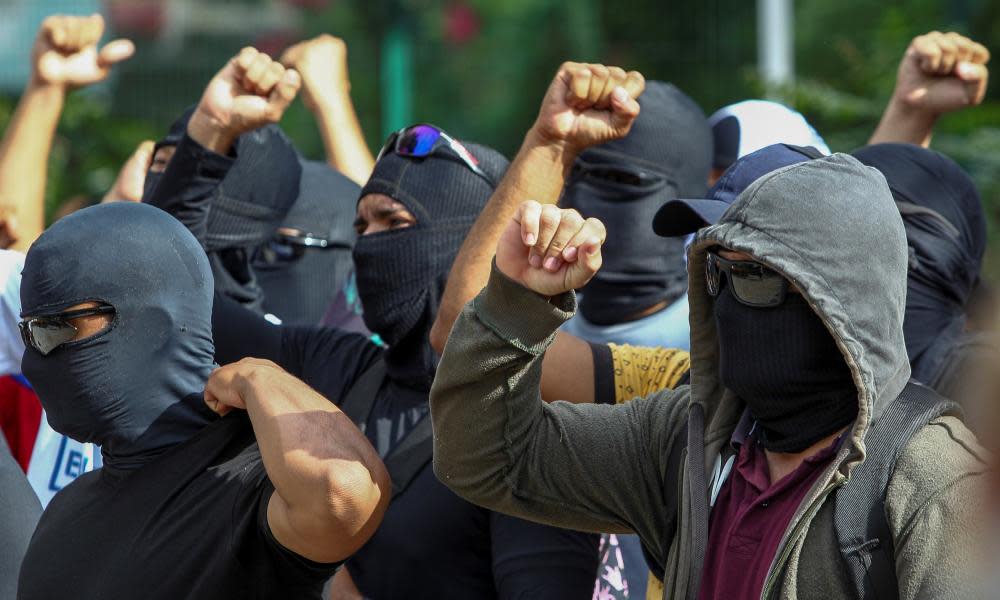Brazil sends armed forces to north-east to quell violence from police strike

Brazil’s far-right president, Jair Bolsonaro, has dispatched army and national guard troops to the north-eastern state of Ceará in an attempt to quell a brewing security crisis triggered by a police officers’ strike.
Related: Rio Carnival takes a stand against Bolsonaro's divisive rhetoric
The decision late on Thursday came after chaotic scenes in which a local senator was shot and wounded after he drove a digger at a picket line manned by masked police officers.
“To the people who are committing crimes,” Bolsonaro said, “they have to understand that the men in green are coming, and it’s going to get ugly.”
But across the country, observers are nervous that the strike will spread as police organizations feel emboldened by a president who has promised harsh policing policies.
An editorial in the Folha de São Paulo newspaper called the Ceará strike “armed blackmail” that should be “contained” before it spilled over to other states.
“We have to separate what are legitimate demands from projects of political power,” said Renato Sérgio de Lima, chief executive officer of the Brazilian Forum of Public Security.
Military police strikes in Brazil are illegal – and often very bloody: a 2017 strike in Espírito Santo state saw more than 200 murders in three weeks. According to the G1 news site, Ceará, a costal state of nearly 9 million people, recorded 51 homicides in 48 hours of the strike. Nine of the state’s 43 military police barracks have been occupied by masked men.
But with growing political power and a sympathetic president, analysts see more chances of amnesties for the illegal strikes and less chance of punishment. In 2018, Brazil elected four senators and 32 congressmen from police backgrounds.
Police in at least six other states are currently negotiating over pay and working conditions. Minas Gerais state recently approved a 41% pay raise for its police even though its public accounts are among the worst in the country.
Sérgio de Lima noted that police protests had been most radical in states led by opposition governors. “The governors become hostages,” he said.
In Ceará, the request for troops was made by a leftwing governor, Camilo Santana, after local senator Cid Gomes was shot and wounded when he drove a digger at police picket line in the city of Sobral.
Related: 'It was execution': 13 dead in Brazil as state pushes new gang policy
Gomes’s politician brother Ciro, who ran against Bolsonaro in 2018’s elections, blamed the president for the shooting. “You think a boy in his 20s would have the courage to shoot a senator if he didn’t think he was in the service of the president?” he said to Folha.
But many Bolsonaro allies described the shooting as self-defence.
Throughout his career, Bolsonaro, a former army captain, has defended some of the worst excesses of Brazil’s endemic police violence, and said he hoped that criminals would “die in the streets like cockroaches” under legislation he hopes to enact to protect police who shoot alleged offenders from prosecution.

